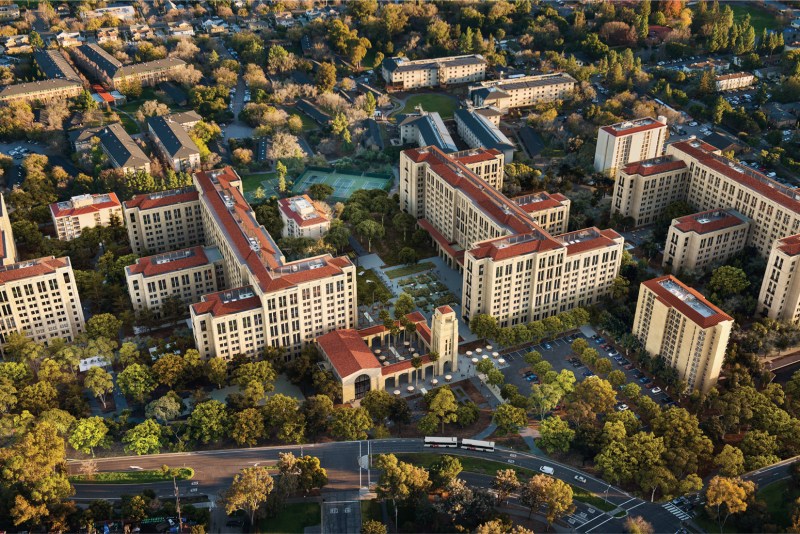Graduate students raised concerns over increased rents at the newly developed Escondido Village Graduate Residences (EVGR) during an information session held Tuesday afternoon.
The new housing in Escondido Village, which includes 2,431 bed spaces in buildings ranging from six to 10 stories, will add a net increase of 1,200 spaces for 2020-21 graduate housing, R&DE Student Housing announced at the session.
Currently, Stanford leases and subsidizes off-campus apartments for 1,100 graduate students in order to fulfill housing demand. The off-campus housing includes 24 apartment communities across Palo Alto, Menlo Park, Mountain View and Redwood City.
Those students will return to campus once the EVGR project is finished. According to the project website, the project “will increase graduate student housing capacity on campus by almost 20 percent, meeting a critical university priority as the Bay Area housing costs continue to rise.”
But, throughout the information session, graduate students cast doubt on the affordability of these new options. For students who are placed into EVGR housing, studio apartments (the only EVGR couples housing option) are $2165/month, 2-bedroom and 2-bathroom apartments are $1688/month and 2-bedroom and 2-bathroom apartments with no living room are $1375/month.
The average monthly rent for all graduate students as a result of the costs for EVGR housing will increase by 16% from $1,280/month during the 2019-20 year to $1,483/month during the 2020-21 year, according to a fact sheet distributed by Stanford Solidarity Network (SSN) members, a coalition of students, post-docs and staff working to coordinate joint activism on campus and engage with urgent issues impacting the community.
“Stanford has answered affordability concerns by claiming that offering more subsidized housing will improve the situation, but new EVGR housing effectively raises rent for graduate students and only serves to exacerbate the affordability crisis,” the fact sheet reads.
“If we consider affordable housing to be that which costs at most 30% of income, currently only ‘efficiency’ housing qualifies, accounting for approximately 10% of available single graduate housing,” it adds.
The Daily has reached out to the University for comment. R&DE Student Housing representatives at the event told students that concerns were all part of a greater conversation that will continue to take place as the housing changes occur.
The informational session also covered the lottery process by which graduate students will be assigned to housing. Housing priority is based on the student’s degree program and the number of years they have had housing. Off-campus subsidized housing students who would have renewed their contracts and now must move onto campus will have top priority in the housing lottery for the 2020-21 school year.
Still, many students were worried that a poor lottery number would force them to select the new, more expensive EVGR housing units.
Many students also raised questions about how many older housing units, which are more affordable than the new EVGR units, would be available. Students were told by R&DE Student Housing representatives that there are a “variety of different price points and options that are going to be available” and that they can immediately apply for reassignment if they are not happy with the assignment they are given in May.
Graduate students at the meeting also expressed frustration that despite being paid similar stipends as at other schools, they incur much higher housing costs.
“Why did we just hear about [these changes] a month ago?” asked an attendee at the meeting. “I can tell incoming students to be prepared to pay 50% of your stipend, but now I’m stuck here.”
Students also raised concerns about the added costs of parking permits and moving expenses. Students who currently own cars will confer a monthly parking fee, yet to be determined, that they did not have to pay off campus. Additionally, while free moving assistance was offered in the past when graduate students were asked to move off campus, off-campus students will now have to accommodate their own moving expenses when moving into on-campus residences.
Other students were concerned that they would not be able to see the EVGR spaces before deciding what priority to assign them to. Student Housing representatives responded that they will be releasing more pictures and videos of the apartments.
First-round housing assignments will be released in May. While specific move-in dates are still unknown, Student Housing plans to stagger moving times to avoid congestion on campus.
Contact Esha Dhawan at edhawan ‘at’ stanford.edu.
